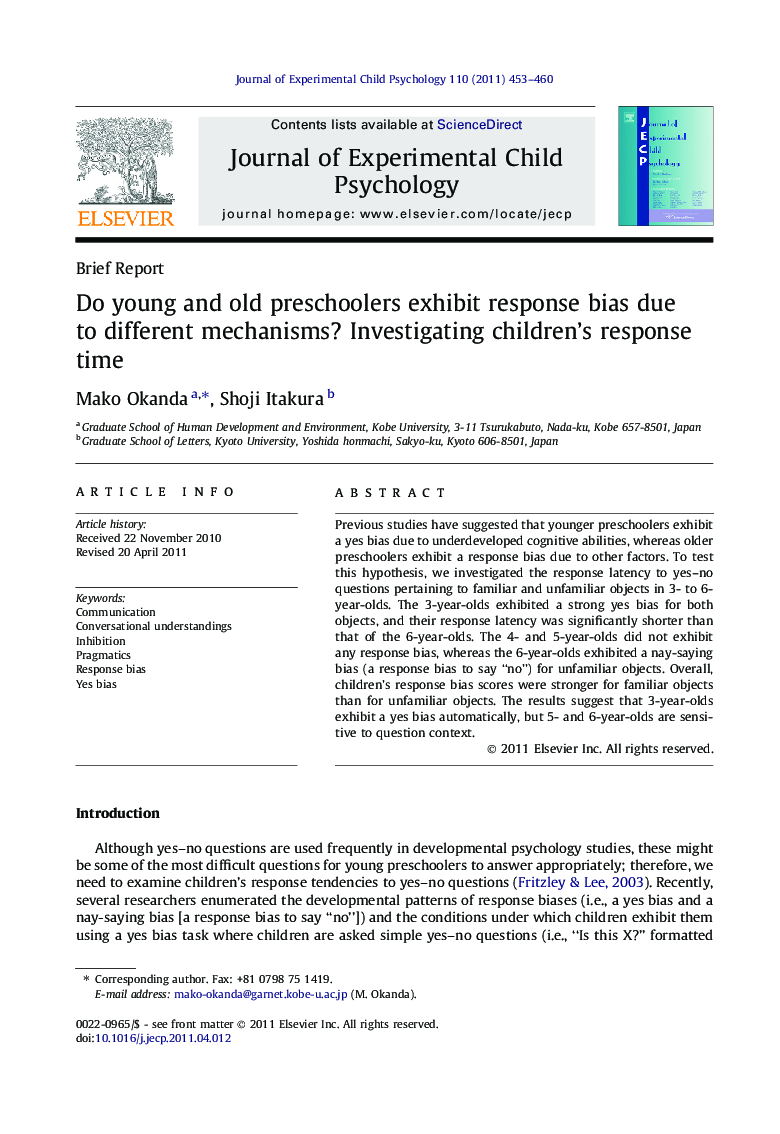| کد مقاله | کد نشریه | سال انتشار | مقاله انگلیسی | نسخه تمام متن |
|---|---|---|---|---|
| 918415 | 919480 | 2011 | 8 صفحه PDF | دانلود رایگان |

Previous studies have suggested that younger preschoolers exhibit a yes bias due to underdeveloped cognitive abilities, whereas older preschoolers exhibit a response bias due to other factors. To test this hypothesis, we investigated the response latency to yes–no questions pertaining to familiar and unfamiliar objects in 3- to 6-year-olds. The 3-year-olds exhibited a strong yes bias for both objects, and their response latency was significantly shorter than that of the 6-year-olds. The 4- and 5-year-olds did not exhibit any response bias, whereas the 6-year-olds exhibited a nay-saying bias (a response bias to say “no”) for unfamiliar objects. Overall, children’s response bias scores were stronger for familiar objects than for unfamiliar objects. The results suggest that 3-year-olds exhibit a yes bias automatically, but 5- and 6-year-olds are sensitive to question context.
► In this study, we examined children’s response latency to yes–no questions.
► 3-Year-olds exhibited a strong yes bias and their response latency was shorter than 6-year-olds.
► 6-Year-olds exhibited a nay-saying bias and their response latency was longer than 3-year-olds.
► These suggest that younger and older preschoolers exhibit a yes bias due to different mechanisms.
Journal: Journal of Experimental Child Psychology - Volume 110, Issue 3, November 2011, Pages 453–460